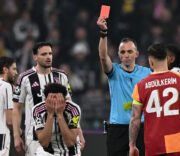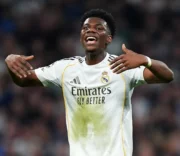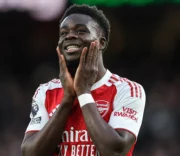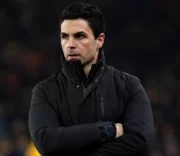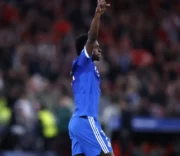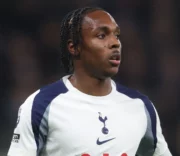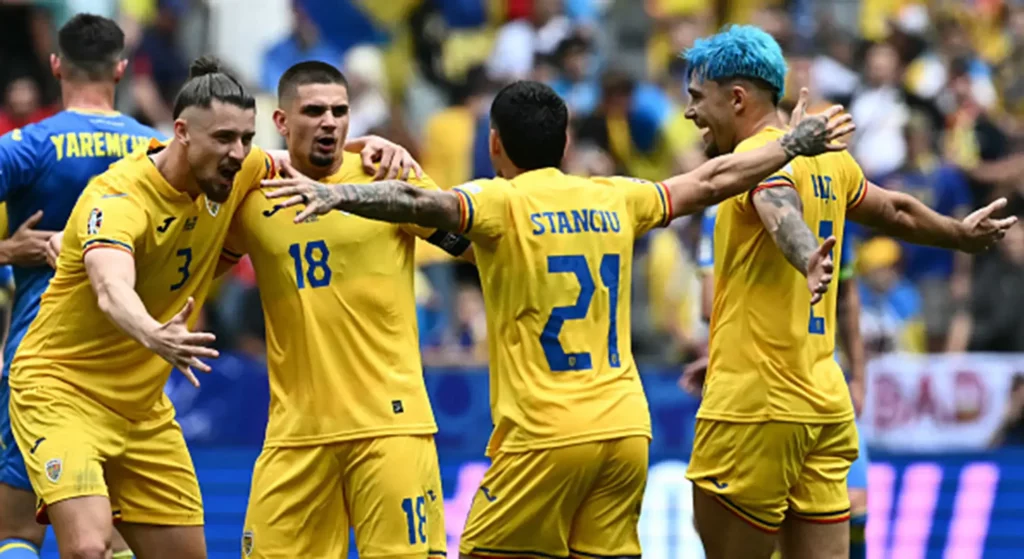
Roman Yaremchuk demonstrated his exceptional skill during a pivotal moment in the match against Slovakia. With just ten minutes left on the clock, Mykola Shaparenko delivered a challenging pass—too awkward for a simple control, yet too low for a header. Skillfully, Yaremchuk managed the ball with a deft lift of his leg, guiding it past goalkeeper Martin Dubravka. The ball crossed the line with minimal pace but just enough to secure a victory for Ukraine, a scenario that seemed unlikely after the first half. This comeback places Ukraine and Slovakia in a position to advance to the last 16 if they can triumph in their upcoming final group matches. While the match was vibrant and captivating, it took place under the overshadowing influence of political tensions, echoing the broader political narratives that have been subtly present throughout the tournament.
Political Tensions at International Football Matches
There have been numerous instances of politically charged behavior at international football matches. These include fans from Albania and Croatia using derogatory chants against Serbs in Hamburg, and a Kosovan journalist who was banned after responding with an eagle gesture to Serbian fans’ provocations. Additionally, English and Serbian fans have booed each other’s national anthems, a lingering effect of NATO’s bombing of Belgrade. Hungarian supporters have been noted for singing irredentist anthems, some of which are now linked to far-right movements in Germany, while Austrian fans booed the French national anthem, acknowledging its historical military origins.
The political undertones were especially pronounced when Ukraine played, using every match as a platform to highlight their resilience and ongoing struggles amid the Russian invasion. Slovakia, initially supportive, shifted stance under the leadership of nationalist Prime Minister Robert Fico, who has sought closer ties with Hungary and reduced aid to Ukraine, reflecting the complex political landscape within the EU.
Political Tension and Game Dynamics
In April, Peter Pellegrini, an ally of Fico, was elected president. However, a dramatic incident unfolded last month when Fico was shot twice at close range during a public meeting in Handlova, situated approximately 120 miles northeast of Bratislava. The assailant, 71-year-old poet Juraj Cintula, was arrested following the attack. Cintula has been a vocal critic of Fico’s policies, which include efforts to limit press freedom, weaken anti-corruption agencies, and reduce support for Ukraine. Fico is currently recuperating and has used the incident to criticize the perceived violence from the left and the EU’s failure to respect differing viewpoints. In the interim, Deputy Prime Minister and Defense Minister Robert Kalinak has taken over as Prime Minister.
On a different note, the atmosphere during the Slovakia-Ukraine football match was surprisingly cordial, with the game captivating enough to momentarily distract from the complexities of foreign policy. Ukraine’s coach, Serhiy Rebrov, made strategic changes to his lineup after a defeat to Romania, including benching captain Taras Stepanenko and star goalkeeper Andriy Lunin. His decisions seemed justified as Lunin’s replacement, Anatoliy Trubin of Benfica, impressively thwarted Slovakia’s early attempts. The Slovak team, transformed under coach Francesco Calzona, showcased a dynamic and intricate style of play. Following a strong start to the tournament with a win over Belgium, Slovakia scored early against Ukraine, with Ivan Schranz heading in a cross from Lukas Haraslin. This goal marked a significant shift from Slovakia’s previously lackluster performances in European competitions.
Ukraine’s Resilient Comeback Against Slovakia
In a dramatic shift of momentum, Ukraine finally came alive following a passive start. Oleksandr Tymchyk narrowly missed with a low angled shot that struck the post before the break. The tide turned early in the second half when Shaparenko, fresh off the bench, connected with a cross from Zinchenko to equalize. Mykhailo Mudryk, seizing an opportunity on the counter, also challenged the Slovakian resolve by hitting the post, a shot goalkeeper Dubravka chose not to engage. Despite Slovakia’s initial control, their inability to maintain dominance was exposed when Yaremchuk sealed Ukraine’s victory, an outcome that had grown increasingly likely as the game progressed.


